I Worked at a Funeral Home for Six Months - Here's What it Taught Me About Death
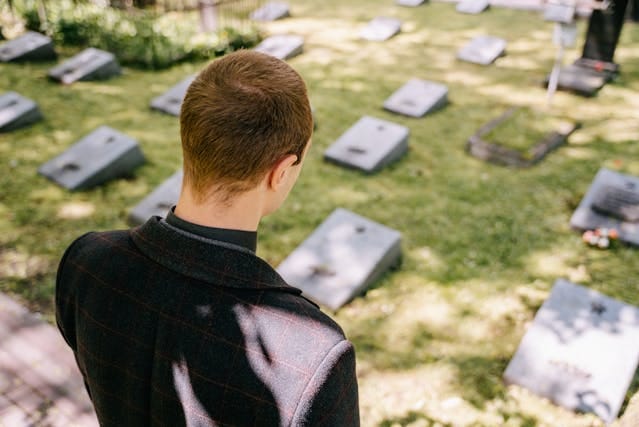
In my last article, I mentioned that I almost became a funeral director.
It didn’t happen, but one of the requirements for being admitted to the program was working in a funeral home to make sure that it’s something you can handle.
I got a temporary position with a local funeral home, and worked there for several months.
During this time, I learned a lot about grief, loss, and death.
Even though I never made this profession my career, I’m grateful that I had the chance to work at funerals behind the scenes.
These are a few of the things that stood out from my time there:
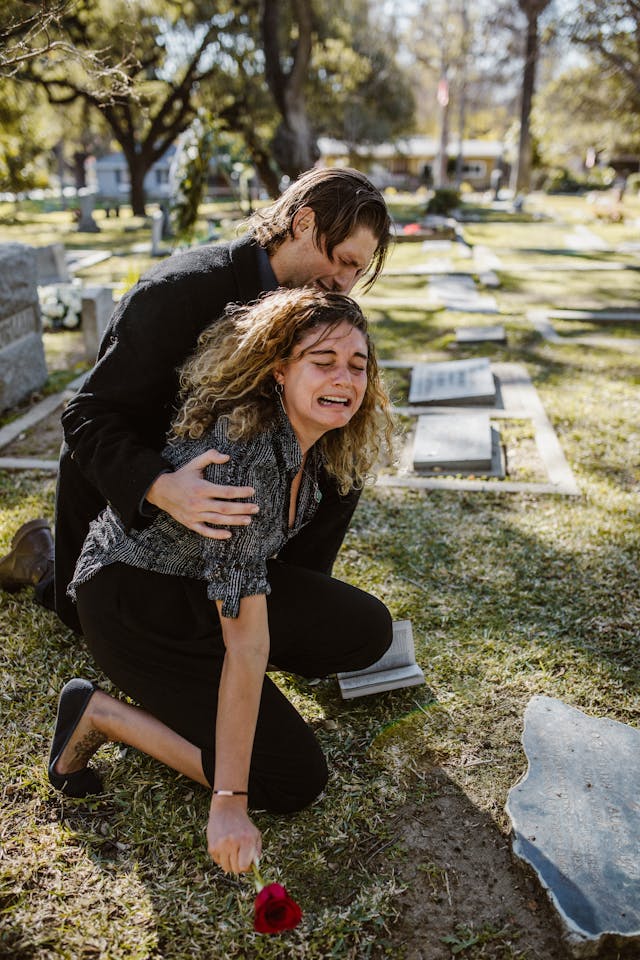
1. It wasn’t as emotionally heavy as I thought it would be.
With the loss of a loved one, and the upset families, I expected funeral directors to occasionally serve in a therapist role.
This isn’t the case.
By the time the funeral happens, the worst is already over. The initial shock has passed, and the family has begun grieving.
Don’t get me wrong, there are plenty of heavy emotions going around - it’s just that as a funeral director, nobody expects you to be the one handling the fallout.
When it came to interacting with friends and family members who were having a difficult time, I found it best to think of myself as a rock.
Being the guy who’s steady and dependable while others are falling apart goes a long way to helping them get through the day.
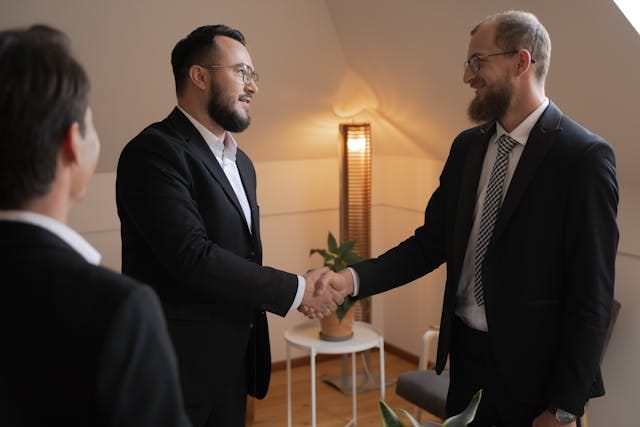
2. It’s a business like any other.
How much does dying cost? It’s up to you.
You can buy a coffin made of pine, walnut, oak - or cardboard. You can even rent a coffin just for the funeral.
Burial plots can cost a pretty penny, so many people choose cremation.
You can rent a hearse. There are all kinds of flowers and decorations.
You can get a name plate, a headstone, or even a custom statue of yourself to let everyone know how you looked when you were alive.
As someone new to the field, I never had the chance to sit with clients planning a funeral, but other employees filled me in on the process.
The funeral home offered a few standard packages, though families could customize if they wanted. We were able to accommodate most budgets.
I’d heard stories about competitors who weren’t so flexible. Some required their staff to push expensive upgrades and even held directors to sales quotas.
Many funeral homes have no issue taking advantage of people in an emotionally vulnerable state - it’s a normal part of the industry.
My boss once told me about a funeral he helped direct for a supposed mafia boss. It was the most extravagant service he’d seen in his career - hundreds of people arriving in limousines, no expense spared.
Most of ours were far simpler. Average cost, sometimes below. And honestly, that made sense. When you’re gone, why drain your savings on a fancy ceremony? That money could go to your family, charity - or something more meaningful.
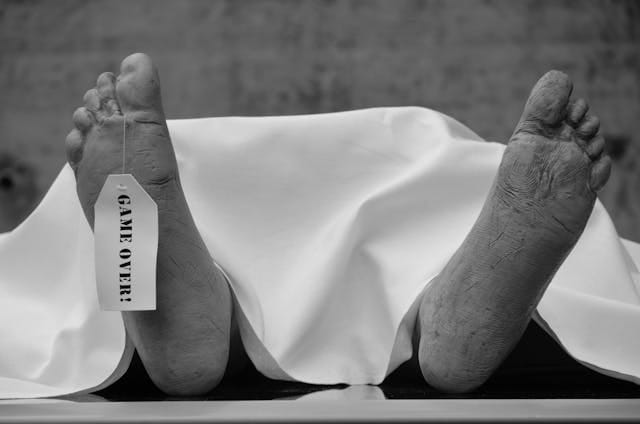
3. You get used to being around dead bodies.
Many of us remember the first time we saw a dead body. I can recall the feeling.
It’s this cold, clammy sensation that extends from the surface of our skin down to the pit of our stomach.
We tend to get uncomfortable when being reminded of our mortality.
Like anything, though, exposure brings familiarity.
Throughout the course of my employment, I had to handle and deliver bodies on a regular basis.
We would retrieve people from their houses, nursing homes, or the hospital morgue.
Our funeral home had two locations, so sometimes I had to bring someone from one place to the other.
After a while, I began seeing the deceased in a similar way that I view furniture.
It’s not that I couldn’t look at a deceased person and see someone who lived a rich life full of experiences, hopes, and dreams. It was more of a way to cope with the fact that I was around the dead so frequently.
I asked if dead bodies pose any risk to our safety, and for the most part they don’t. The chemicals used for embalming - such as formaldehyde - are more of a health concern.
Blood-borne contagious viruses like HIV/AIDS require living cells to survive, and dies within minutes to hours after the host passes. Hepatitis B and C can remain active for days or even weeks.
In any case, we always wore latex gloves when handling the dead.
As for embalming, the way it is done is that an incision gets made in the area where the shoulder meets the neck.
The director finds the carotid artery and jugular vein. Embalming fluid is pumped into the carotid while the blood is drained out of the jugular.
I was surprised to learn that body fluids coming from an embalmed person don’t have any special disposal procedure. It just goes down the drain with the wastewater.
I guess it’s not that big of a deal considering everything else people flush down the tube.
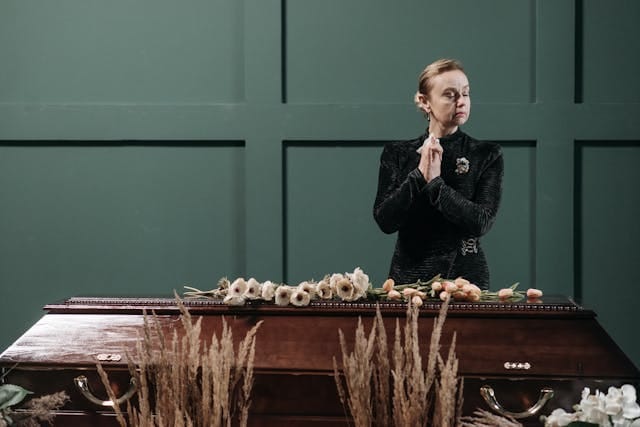
4. There’s a surprising number of feminine skills that go with the job.
I tend to think of funeral director as a masculine profession. You’re handling the dead. You’re lifting heavy bodies. Embalming can feel a little gruesome.
However, many of the skills required to be a good funeral director are typically considered feminine.
You need to have strong attention to detail and know how to make a good presentation. You’re always well-dressed.
Funeral directors need to know how to apply makeup and arrange flowers. They also learn to style hair.
There weren’t many female funeral directors in the home where I worked - only one I can remember. However, I have been seeing an uptick of women getting involved in the profession.
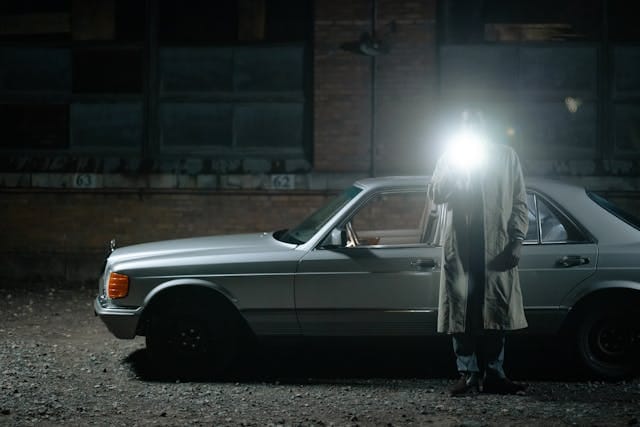
5. You find yourself in some strange situations.
At one point, I found myself driving the company van to the crematorium with two bodies in the back.
That in itself is pretty weird.
Then I started wondering “What would happen if I got into an accident? How would that look?”
I figured I’d run to the other driver and be like “Oh no, look what you did to those guys in the back! It’s all your fault.”
On a separate occasion, myself and another funeral director went to pick up a body from the hospital morgue.
Two guys in black suits walk into the building pushing a stretcher.
We load the body onto the stretcher, zip up the cover, and head out the back door.
Just as we were getting to the van, I look over and see a father walking past with a small child - a daughter maybe 5 years old. She just turned around and stared at the two of us loading a dead body into the back of a van.
All I could think of saying to this girl was “Don’t ever take up smoking.”
On a more serious note, there was a tragic death where a three week old baby died of meningitis.
They wanted him embalmed and an open casket funeral.
Our embalming facility was at our main location and the funeral was to take place in the other one.
Myself and another director needed to bring this infant to our other facility, while also stopping at city hall to file death certificates.
He asked me to stay in the van with the infant while he ran inside.
I was just sitting in the passenger seat, looking over at a dead baby in the back of the van, thinking “This is the most fucked up situation I’ve ever been in.”
It’s safe to say that most people will never find themselves in scenarios like this. When death is at the focal point of your career, a lot of strange things happen.
I found it was important to deal with these situations as they arise, and reflect on them at a later time.
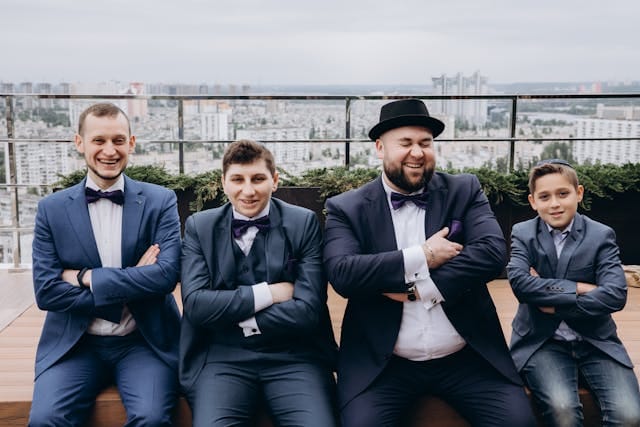
6. Funeral directors are a bunch of jokers.
When you’re constantly dealing with death, loss, and grief, being serious all the time is a shortcut to burnout.
When it was time to be professional, everybody took their job seriously.
In between the work, it was nonstop jokes. Several of my coworkers could have had second careers as stand-up comedians.
We never made fun of the deceased or their families, but just about everything else was fair game.
Practical jokes were pretty common, as was light teasing. It was a great way to break the tension of the serious work we were doing.
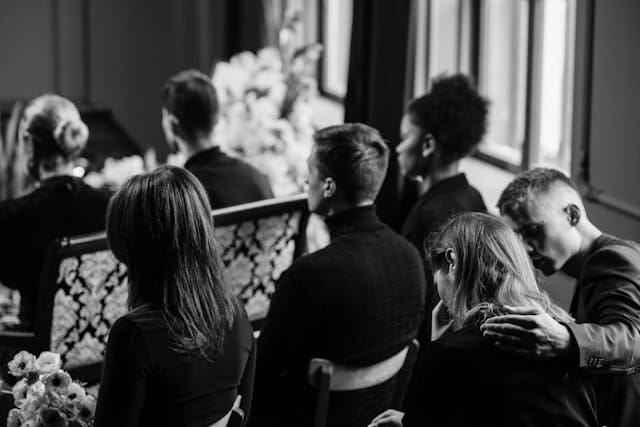
7. Hurry up and wait.
Like a lot of other professions, there are periods of boredom followed by frenzied activity.
Funerals were scheduled - sometimes two or three per day in the same home - and we needed to have everything cleaned up, organized, and ready to receive visitors. Then we would wait for the service to finish up before getting ready for the next one.
Other times, we would need to transport a body for embalming - only we needed to wait for paperwork to be filed.
On occasion, someone who arranged their funeral with us was on their deathbed. We would be on standby until they passed away to collect their body for embalming.
With everything going on, it was easy to forget to eat or drink and find ourselves paying for it later on.
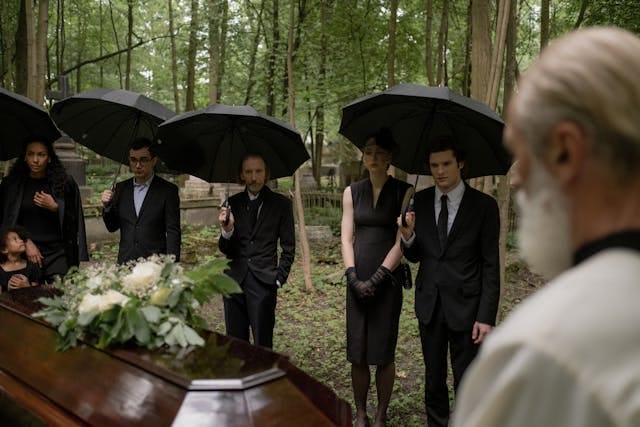
8. Tragedy can bring people together, but sometimes it brings out the worst.
One of the most attended and memorable funerals I worked came after a tragic accident.
There was a teenager driving down a highway when he turned around to fish his cellphone out of the back seat.
He wasn’t paying attention and drifted into oncoming traffic.
Coming the other direction were members of a riding club on motorcycles.
The minivan collided head-on with the group knocking several riders off of their motorcycles killing one of them.
The day of the funeral, one member was still in the hospital. Another came in a wheelchair with a shattered leg held together with pins.
A few others were bandaged with minor injuries.
All the riding club members showed up in their vests. They brought their families.
I couldn’t believe how many people were in attendance. This guy had a lot of friends. He was loved by a lot of people.
Even though I sensed that the family was still in shock, it was comforting to know that there were many people around to help them get through this difficult time.
In not-so-similar regards, my coworkers told me stories about people who passed away, and unexpected guests showed up to their funeral.
It could be an estranged family member, an ex-wife/husband, or somebody the deceased hadn’t been in contact with for years.
Many came with one thing on their mind - money.
Were they entitled to anything? Did the deceased leave something to them in their will?
Others were carrying a grudge and showed up with an axe to grind.
Of course, this is tasteless behavior, but there are a lot of shameless people out there.
This often caused conflict with the families. Sometimes they would make a scene - occasionally being asked to leave.
Death has a way of bringing up long-repressed emotions - both good and bad. As a funeral director, you get exposed to a little bit of everything.
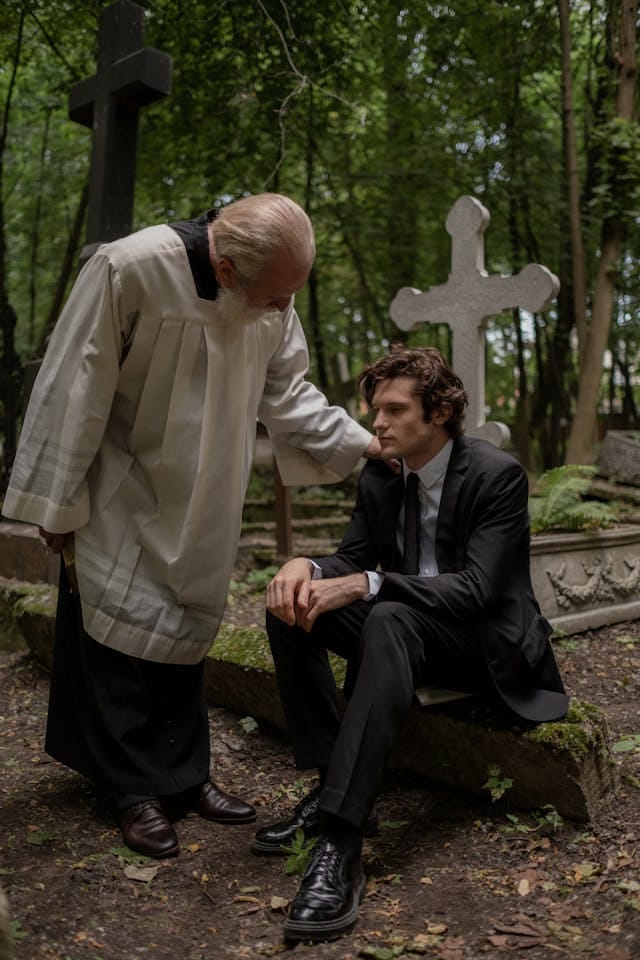
9. Suicides are the worst.
My first day at work, I was introduced to a director who was about my age. I had a lot of questions, and pretty much picked his brain clean.
When I asked about the worst kinds of funerals they deal with, he emphatically told me that it was for people who committed suicide.
I’m no expert in this topic, but I think it’s safe to say that people who kill themselves are not mentally well, and often try to do as much damage to the people around them on their way out the door.
When people make the decision to commit suicide, they’ll often come up with a plan for how they’re going to do it, how others will find them, and the reaction they’ll get.
In one instance, a man took a long walk into the woods, before killing himself with a shotgun. He had been there for a couple of months before being discovered.
One of my coworkers had to hike over an hour through the bush in a suit to collect his mangled and decomposing body.
In another case, a teenager hung himself from a television antenna at the front of his family’s house.
His parents were away, and it was close to Halloween.
His dead body looked like just another Halloween decoration.
By far, the worst story a coworker told me that haunts me to this day happened after a woman committed suicide.
She left behind her 12 year old son. In her suicide note, she blamed her child saying that it was his fault she took her life.
My coworker watched this poor kid come to the funeral, sit outside on a bench, and cry his eyes out uncontrollably for 3 straight hours. There was no way to console him.
These are the worst funerals to attend - because they’re entirely preventable. These deaths cause the most pain to everyone left behind.
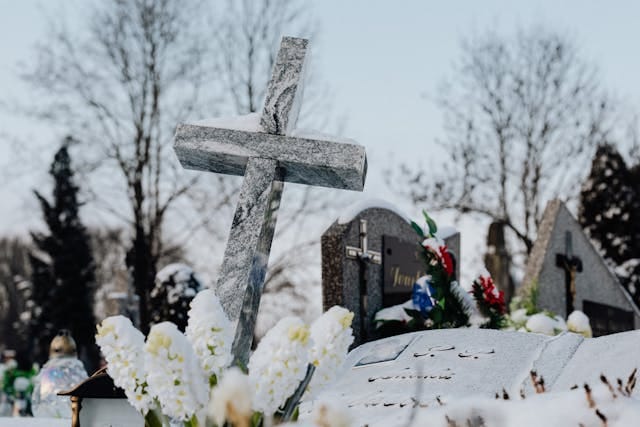
10. Religion and spirituality play a significant role.
We did a fair number of funerals for people who weren’t religious. These secular funerals tended to be more lighthearted and casual.
However, most of the funerals I worked were religious - even if the deceased wasn’t a regular practitioner when they were alive.
In times of crisis, people often turn to God - and funerals definitely fit the bill.
Christianity was the main religion where we operated - mostly protestant, but sometimes Catholic.
I didn’t get the chance to work at an Orthodox funeral, but I’ve attended some since joining the Church.
I found the Christian funerals to be more meaningful, insightful, deeper, and significant compared to most of the secular ones - regardless of the church or denomination.
I’ve never worked or attended a funeral for other religions, so I can’t tell you how Muslims, Hindus, Sikhs, or Jews mourn their dead.
All the funeral directors I worked with were religious Christians that were active in their church. They weren’t vocal about it, and it wasn’t a big deal to them, but it was a part of their lives.
Overall, the time I spent in the funeral home was an eye-opening and unique experience.
There were a few tragic accidents and diseases that cut people’s lives short, but the vast majority were elderly people whose time had come.
Listening to my fair share of eulogies, what mattered most to everyone was the person’s character, their values, and the relationships they shared.
It’s hard to say how much it changed my perception on death and dying, but it did force me to take a closer look at the subject.
Death happens to all of us. It’s unavoidable.
The funeral isn’t for the deceased. It’s for the living.
It’s a chance to get together with everybody who loved the man or woman while they were alive. It’s a chance reminisce, tell stories, laugh, cry, pray, and remember.
We get to choose how we spend our time on Earth. The decisions we make - big and small - have a lasting impact on everybody around us, whether they’re our closest relationships or complete strangers.
Our lives are a gift from God. It’s important to be grateful for everything we have, no matter how small or insignificant.
You have all the time in the world to do as you want - until you don’t.
Be sure to use your gift of life wisely.
If you enjoyed this article, bookmark this page and remember to Subscribe.
Check out my Substack:
http://crossedstakes.substack.com
And follow me on socials:
Facebook: https://www.facebook.com/profile.php?id=61577920320315
Twitter: https://x.com/peterm82321
Instagram: https://www.instagram.com/peter477894/
Youtube: https://www.youtube.com/@oreilly81
Thanks for reading.
God Bless.
Member discussion